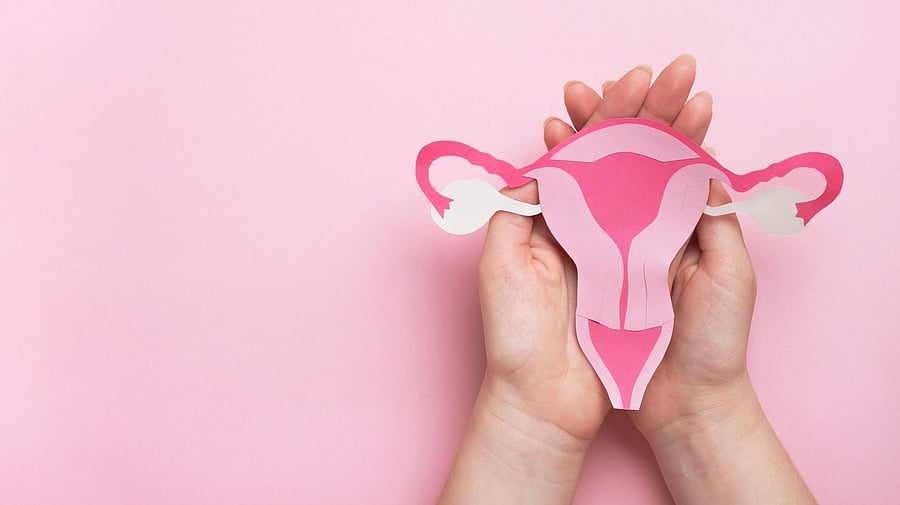
Representative image for periods.
Credit: iStock Photo
Girls and women between the ages of menstruation are all too familiar with this refrain: “It is that time of the month again.” The onset of menstruation often triggers anxiety, especially when it coincides with a festival, a family event, a pressing assignment at work, an exam, an interview, or a travel schedule. Many women brace themselves for the pain and discomfort that typically accompany their period, adding pressure to an already busy day.
This is a recurring reality; month after month, women rely on home remedies – and in more extreme cases, painkillers-- for relief, with little else available to ease the physical discomfort. But mental stress and unease can only be addressed through concerted, sensitive conversations. While some progress has been made, much more remains to be said, heard, acknowledged, and built into policy frameworks.
The concerns are twofold. The first is the imposition of humiliating and callous restrictions on menstruating women, rooted in religious and cultural norms. Most major religions stigmatise menstruation, banning women from places of worship, rituals, and other associated activities. Much has already been said and written against enduring religious and socio-cultural restrictions that treat menstruating women as impure, isolate them, prevent them from entering kitchens and even their homes for a few days each month, segregate their articles of daily use, and discriminate against them in many other ways.
The second concern arises from the pressures of the market. On one hand, the market offers a range of menstrual hygiene products, painkillers, and mobile apps that track menstrual cycles—tools promising comfort for those who can afford them. On the other, it aggressively promotes the image of the modern, efficient, ever-energetic woman who can effortlessly balance her responsibilities, undeterred by menstruation. These carefully crafted advertisements and pop culture narratives are hard to contest and dislodge and have become aspirational for many women.
Ironically, even progressive critics of religious and socio-cultural restrictions often draw upon this market-driven trope of a modern, efficient and diligent woman worker to argue that menstruation should not interrupt a woman’s domestic or professional duties. While their aim —to debunk inhumane codes and practices that ostracise and discriminate against menstruating women--is noble, these counter-narratives risk invisibilising the very real pain and fatigue that menstruation can cause.
In recent years, demands for breastfeeding stations and crèches at the workplace have been increasingly acknowledged, at least on the normative plane. But is it possible for a woman to walk up confidently to her seniors and excuse herself from the task at hand or demand its temporary postponement to get some respite from the unbearable pain brought on by menstruation? She will, in all probability, refrain from such a recourse—she will be dissuaded on the one hand by the stigma still widely associated with menstruation and the fear of being branded as a lazy and irresponsible worker on the other. Such perceptions continue to influence opinions even in offices and organisations where women have managed to break into the ranks of the higher leadership. The dictums of efficiency and continuity are highly likely to be explicitly prioritised over something as repetitive and familiar as a menstrual period.
Repetition and familiarity do not, however, lessen or in any way ease the very real experience of pain, discomfort and nausea that many women go through in the initial days of menstruation. In India, we were unfortunately unable to arrive at a clear consensus around the concept of ‘period leave’. While we were quick to reject it, we have not yet suggested or rolled out any viable alternative solutions that can be implemented on a significant scale. We still have to go a long way to create safe, accepting work environments where women can legitimately postpone the assigned tasks briefly, citing menstrual pain and discomfort, and expect some relief without worrying about the repercussions.
It is important to dispel myths about menstrual blood and resulting discriminatory practices. Equally, it is critical that women are able to acknowledge the fact of menstruation and speak about the pain stemming from it without fearing any prejudice or judgement. Finally, it is high time that we free menstruation from the realm of ritual and religion, as well as the realm of the market. We need to detach it from these pervasive forces and recognise it as a natural, physiological function of women’s bodies.
(The writer is an assistant professor of history at Azim Premji University, Bhopal)